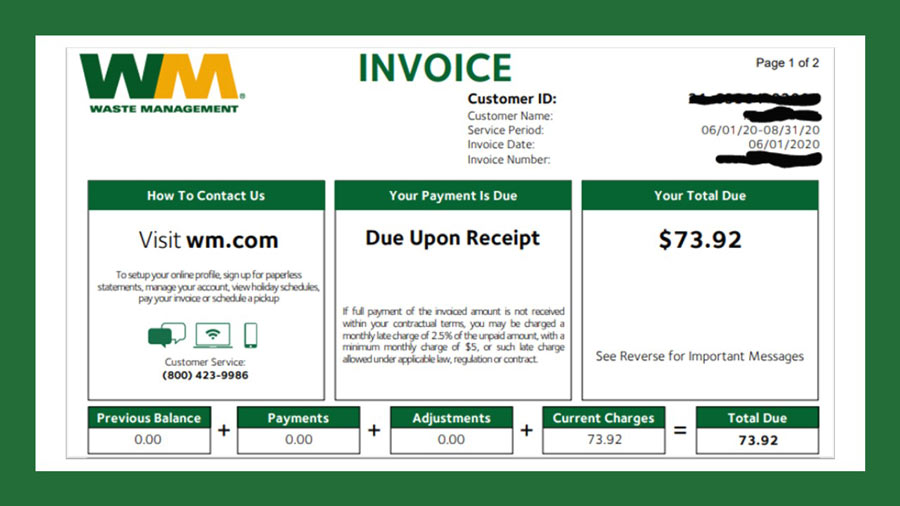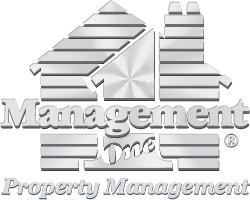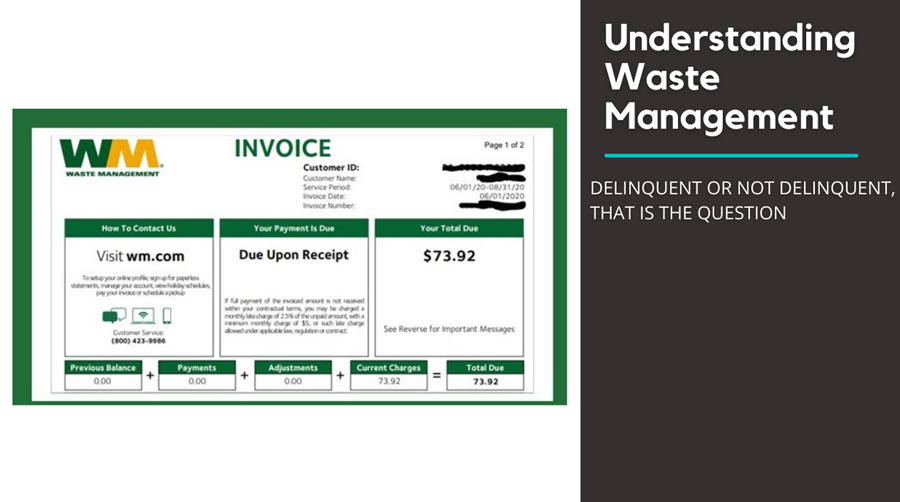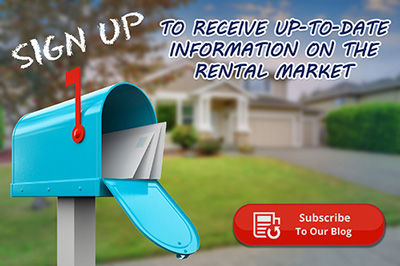As you sit down to drink your coffee and open your mail, you notice a trash bill amongst the junk. It strikes you as strange, but you proceed to open it. Low and behold, it is for your rental property; and the amount owed is HUGE!
What started as a relaxing morning turns into a stressful one, as you read the letter in detail stating this amount is dangerously close to being assessed to your property taxes. HOW COULD THIS HAPPEN? And why haven’t my renters paid this bill?
So many unanswered questions and utter confusion cloud your mind. Do I call the trash company and pay it? Should I call the management company to demand they pay this? Where do I start?
During my time in property management, I lost count of the number of owners that call to ask about a trash bill. I found that about 95% of the inquiries involve a current trash bill or a paid trash bill.
Just Stop Service
A common misconception about the delinquent trash bill is that Waste Management or any other sanitation company will stop picking up the trash if they fail to pay. Unfortunately, the regular removal of solid waste from residential properties is an essential sanitation practice that protects both the environment and the public.
Properties with unpaid trash bills that are 60 or more days past due are placed on a delinquent list, as the property owner is ultimately responsible for the past due amount on the property. Owners are typically notified within 30 days of the trash bill hitting their property taxes and are given the opportunity to correct the past due accounts prior to the lien process. Waste Management mails and email notices to the owner’s contact information on file. The lien comes after many failed attempts to collect the past due amount. As the property owner, you are responsible for the upkeep of your property.
Understanding Waste Management Billing

Waste Management bills quarterly for their services, and depending on the size of your container, you are billed between $70-95/quarter. The image above shows a current bill, even though as a landlord you received this bill along with a notice that the resident didn’t pay the bill. The bill doesn’t become delinquent until September 1st, when the new bill is generated. Billing is done in advance for the quarter and assessed a $5.00 late fee penalty if the payment is not received by the due date. The bill is also assessed a 2.5% monthly late charge of the unpaid amount. That adds up!
Strategies
Some management companies include the trash bill into the lease for the property, shying away from letting the resident maintain the bill on their own. Including the rent in the rent works excellent for properties with multiple units. There is one bill that comes from Waste Management and one payment. When dealing with single-family homes, management companies must pay the bill per property. Imagine managing 400 properties and paying each bill individually.
Another way management companies collect delinquent bills is by deducting the amount owed from a resident’s security deposit when they vacate. Management companies check to make sure the resident has not left a past due balance on the account upon vacating. If they leave a balance, the balance is deducted. The challenge with this is, the average resident stays in a property for 4.5 years. If a management company waits until the resident vacates to check the bill and pay it, the bill could be nearly $1350 dollars. That’s a decent chunk out of the security deposit.
In extreme cases of delinquent trash bills, some management companies have opted to deduct the amount from the rent, thus making the resident’s rent “short,” serving them a 3-day notice to pay or quit for this shortage in the rent. With this tactic, owners/management companies have a legal leg to stand on in court if the resident fails to pay, and they go into eviction.
While the latter might seem like an extreme measure, it seems to be the most effective in receiving payment from your resident. In some cities, like Erie, PA, they actually post the delinquent trash bills on their website for the whole city to see who is late on their bill. Magically, they had 75% of their delinquent bills become current.
If the delinquent amount was reported to your property taxes, you could pay Waste Management directly. By paying them directly, it will clear the balance, and the resident will be charged.
The best solution for landlords is calling Waste Management directly and ask that they put your property management company’s address on the bill. By adding your property management company to the bill, it ensures they receive a copy of the bill and can stay on top of it quickly. It also eliminates one more thing off your plate. You can reach them at 800-423-9986.












